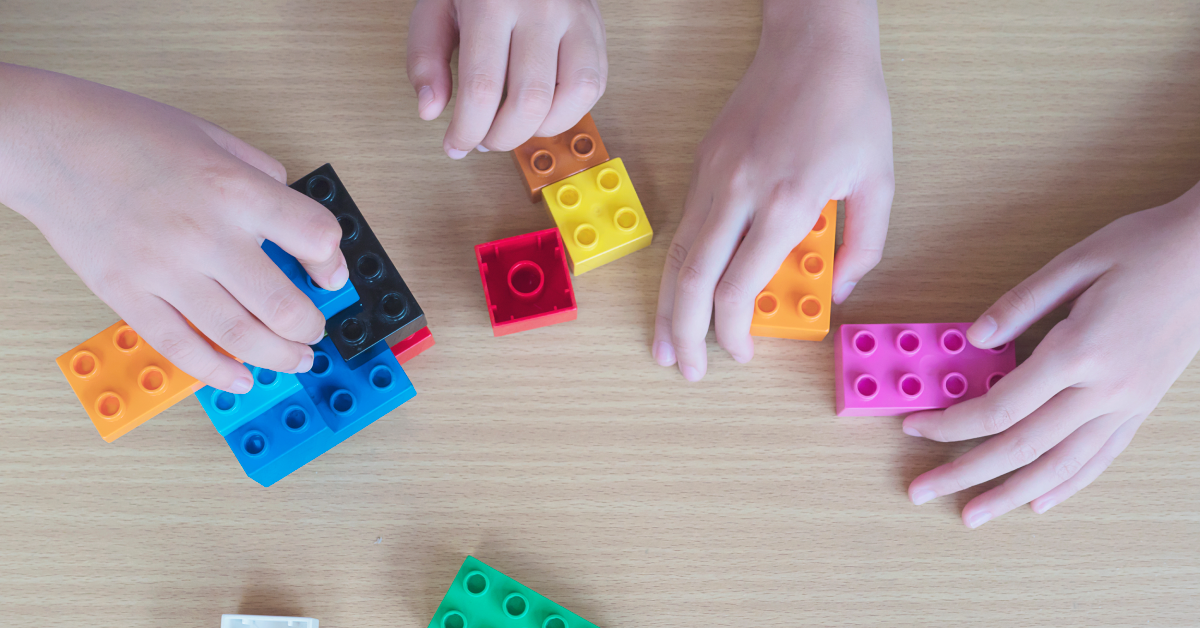Apr19
Dyscalculia Treatment: LEGO building blocks
Developmental dyscalculia is a disorder that makes it difficult to understand and use mathematical concepts such as time perception or measurement and to solve mathematical problems. LEGO blocks can help children with dyscalculia understand these mathematical concepts and procedures and treat dyscalculia.

Definition of Dyscalculia
Dyscalculia is a learning disorder that affects a person’s ability to understand and perform basic mathematical calculations. Individuals with dyscalculia may have difficulty understanding numbers, performing simple arithmetic operations and comprehending mathematical concepts. Fortunately, effective treatments exist to help people with dyscalculia overcome these challenges and understand numbers and mathematics.
Dyscalculia Treatment
The first step in treating dyscalculia is early diagnosis. Symptoms of dyscalculia can appear as early as kindergarten, but it is often not diagnosed until primary school. Parents and teachers should look out for signs of dyscalculia, such as difficulties in counting, pattern recognition and estimating quantities. If a child is suspected of having dyscalculia, it is important to seek a complete evaluation from a mental health professional.
For children with dyscalculia, individualised education and treatment is necessary. Teachers can work with students on a one-on-one basis to understand their strengths and weaknesses, and develop a personalised learning plan. This may include teaching mathematical concepts in small groups or adapting teaching methods to meet the specific needs of each student. It is important to keep in mind that treating dyscalculia is a long-term process that requires patience and persistence.
The Use of Manipulative Objects
There are several methods that can help people with dyscalculia succeed in mathematics. One of them is the use of manipulative materials, such as rulers or base 10 blocks, to help visualise mathematical concepts and procedures.
Can LEGO-type Building Blocks be Considered Manipulative Materials? There are several studies that have explored the effectiveness of building block play in the development of mathematical skills and, indeed, these studies support the idea that LEGO building blocks can be a valuable tool in the treatment of this learning disorder.
LEGO Style Building Blocks
In free play
Lego building ability is positively related to math performance. This means thatchildren who have more experience in building with blocks, on average, have better math skills.
What suggestions do these studies give us in terms of dyscalculia treatment? Offer these children LEGO-type blocks to play freely and develop their building skills and visuospatial skills. In the process, we can support them to learn to create ever more complex constructions as their skill level increases.
In formal activities
We can also use LEGO bricks as manipulatives to organise more formal activities. In this case, working with LEGO building blocks allows children to visualize and manipulate mathematical concepts, which can be very helpful for long-term understanding and retention.
There are many ways in which building blocks can be used to improve mathematical skills in children with dyscalculia:
- Work on basic math skills: Activities such as counting LEGO blocks or sorting blocks by shape and size can be introduced.
- Working with fractions: Children can be helped to understand fractions by showing them an 8-point LEGO brick and helping them to divide the fraction using smaller bricks. Two 4-point LEGO bricks can be used to demonstrate ½. 4 bricks of 2 points will show ¼.
- Figure building: Children can be assisted to build shapes and objects with LEGO blocks, using shapes and measurements.
- Math problem-solving: Math problems can be presented to the child, and they can solve them by using LEGO blocks to model the problem.
Conclusion
These are just a few examples of how building blocks can be used for dyscalculia treatment. It is important to work with a qualified therapist to determine the most appropriate approach for each child.
If you have any doubts about whether your child has dyscalculia, feel free to use this free dyscalculia test. You will receive the results instantly.
Early identification and attention help reduce difficulties in children with dyscalculia.
References
- Nath, S., and Szücs, D. 2014. Construction play and cognitive skills associated with the development of mathematical abilities in 7-year-old children. Learn. Instr. 32:73-80. doi:10.1016/j.learninstruc.2014.01.006
- Casey, B. M., Pezaris, E. E., and Bassi, J. 2012. Adolescent boys’ and girls’ block constructions differ in structural balance: a block-building characteristic related to math achievement. Learn. Individ. Differ. 22(1):25-36. doi:10.1016/j.lindif.2011.11.008
- Verdine, B. N., Golinkoff, R. M., Hirsh-Pasek, K., Newcombe, N. S., Filipowicz, A. T., and Chang, A. 2014. Deconstructing building blocks: preschoolers’ spatial assembly performance relates to early mathematical skills. Child Dev. 85(3):1062-76. doi:10.1111/cdev.12165
- Stannard, L., Wolfgang, C. H., Jones, I., and Phelps, P. 2001. A longitudinal study of the predictive relations among construction play and mathematical achievement. Early Child Dev. Care 167(1):115-25. doi:10.1080/0300443011670110
- Dyscalculia Exercises in PDF to Work on Place Value - 28 de September de 2023
- Activities to Work On Dyscalculia: Board Games - 5 de May de 2023
- Dyscalculia Treatment: LEGO building blocks - 19 de April de 2023

